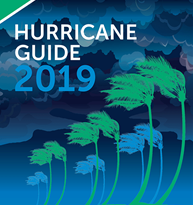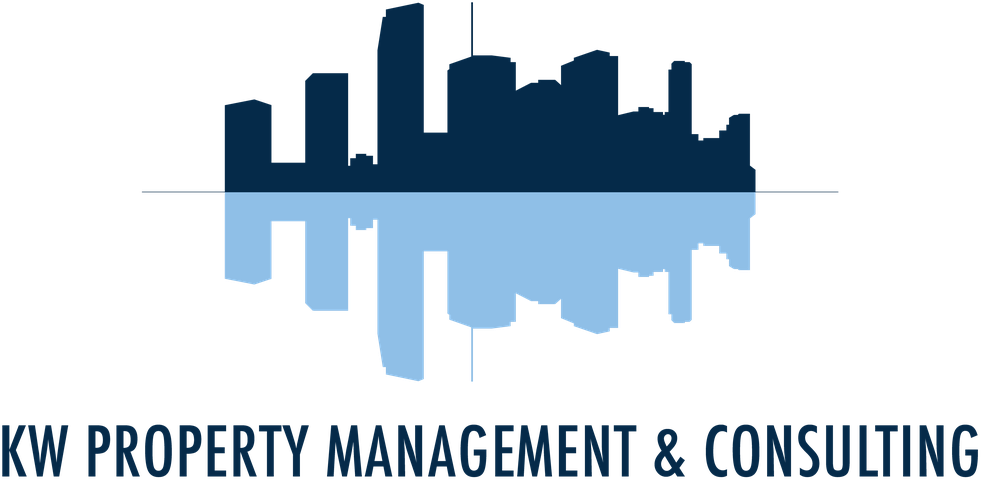
Preparation is the key to good management. Hurricane season beings on June 1st and now runs through November 30th, and as you are well aware, having a Hurricane Preparedness Plan in place makes the process of preparing more efficient. To help you be better prepared we’ve created a checklist of the items you should include:
Financial Preparation
- Fund reserves at least partially; the absence of any cash reserves will hinder an association’s ability to make a deposit to a contractor who is available.
- Consider a special reserve to fund insurance deductibles and/or items not covered
- Consider making arrangements for a line of credit with your bank, so that you will have available cash to meet emergencies and secure contractors.
- Consider applying for an Association credit card to allow managers to purchase preparation or recovery items.
- Seek a loan from your bank for reconstruction or upgrades to property including storm proof windows and shutters.
- Review current investments in CDARS, ICS or Certificates of Deposit; know the maturities and consider shorter terms or non-renewals during recovery if funds might be needed to avoid closing penalties.
- Know all of the payment methods for your homeowners and remind them in the event one of the methods is unavailable:
- US Mail – Local post offices may be closed or mail not delivered
- Local Branch – If power or internet is out in certain areas, does the local branch accept payments?
- Online payments by credit or debit card or eCheck – Are you enrolled to allow your homeowners to pay online to avoid mail delays?
- ACH – Encourage automatic payment to avoid mail delays and internet outage interruptions.
- Bill Pay – Advice homeowners to use their bank or a bill-pay vendor to initiate payments online.
- Recognize that because of storm related damage including post office delays and power outages, you may have fewer payments received during this time and homeowners may be late on payments.
- Use online banking services to transfer funds, monitor account balances and retrieve bank statements – be sure you know your online access information.
- Keep a printed copy of your bank’s contact information to use in the event that you cannot obtain this information electronically.
Insurance Preparation
- DO NOT UNDERINSURE;
- Ask your insurance carrier (or broker to facilitate) to conduct an engineering review of your facilities and provide you with recommendations and a report.
- Gain a clear understanding of what items are not covered by insurance.
- Require an Annual Board Review of the deductible amounts of all insurance policies and consider informing all unit owners of the results.
- Before Hurricane season, remind owners of the limits of the Association’s responsibilities.
Operational Preparation
- Develop a clear Emergency Contact Plan detailing the escalation order and how to contact board members and managers should a dangerous situation develop. Remember, the first responsibility of the Association Board is to take the appropriate steps to secure the property.
- Prepare alternative means of communication with residents and Board Members including via phone, text, email.
- Conduct a Hurricane Preparation workshop/training with all staff members ensuring they are aware of the policies, preparation plan and their personal responsibilities.
- Consider conducting a Hurricane Preparedness Informational Session for your residents to help answer any questions they may have and to communicate the community’s plan.
- Monitor school closures for their impact on staffing levels.
- Secure important papers and sensitive information and backup all digital records. Secure the backup on a remote server or off-site if it is a physical back-up.
- Create and disseminate a Hurricane or Storm Preparedness Guide for homeowners that includes reminders of insurance, evacuation instructions, pet arrangements, contact information, etc.
- Consider allowing Board Members to enact “Emergency Board Powers” in the event of a disaster.
- Know your bi-laws and your state statues regarding rights and claims.
Property Preparation
- Conduct regular roof inspections.
- Inquire if your roofing contractor offers annual inspection/maintenance program.
- If your Association is facing roof replacement in the near future, consider alternative style and materials.
- Consider an independent engineering study of your buildings, especially if the building is more than 10 years old; schedule updates on a recurring basis.
- Pay attention to carports, which typically are not as stable as other structures.
- Develop and communicate a building evacuation plan.
- Prune large trees and shrubs before hurricane season arrives.
- If your Association has rules covering the allowable parking locations for boats, trailers, golf carts, etc., police the rules regularly and consistently during Hurricane Season.
- Protect Association machinery, equipment, and business records.
- Create rules concerning personal property on balconies, lanais and decks. Enforce the rules and monitor consistently throughout the Season.
- Prepare common areas such as club house or pool and secure items.
- Create an open lot to stockpile tree debris.
- Communicate to residents that energy failures are one of the biggest results of a storm. Electrical power outages can comprise elevators, air conditioning and other critical systems.
- If you have a generator, have it serviced and inspected before Hurricane Season begins.
- Photograph and/or video your common areas, facilities and assets that are insured. It is always good to have recent photos of how things looked “before” a storm.
- Have on hand a current, hard-copy reference/contact list complete with the names all property owners, emergency contact numbers and details of second residence addresses, as well as a list of all association employees, with full contact details.
Vendor Preparation
- Review your vendor contracts and know what to expect. Communicate with your vendors to understand their post-Storm response protocols and policies. Obtain the direct contact information of the manager/individual that you deal with at the company to ensure you can reach them in the event that they aren’t able to immediately open their offices.
- Prepare a hard copy of your Vendor List including direct phone numbers and emails. Secure in a safe place.
- Maintain a healthy business relationship with your service providers and vendors. Courteous behavior and prompt payment of their bills will go a long way to assure their timely response when you really need them.
- Engage a tree-trimming company with an agreement that the Association would be its top response priority in the event of hurricane or storm related damage.
- Secure appropriate vendors that can aid immediately after a storm.
Being proactive is the best way to show an Association you are working in their best interest. Don’t wait until there is no water, no electricity and trees are falling all around you.
Article was contributed by Jayme Gelfand, PCAM, Vice President, Relationship Market Manager
BB&T Association Services | To reach Jayme: jg******@****dt.com
